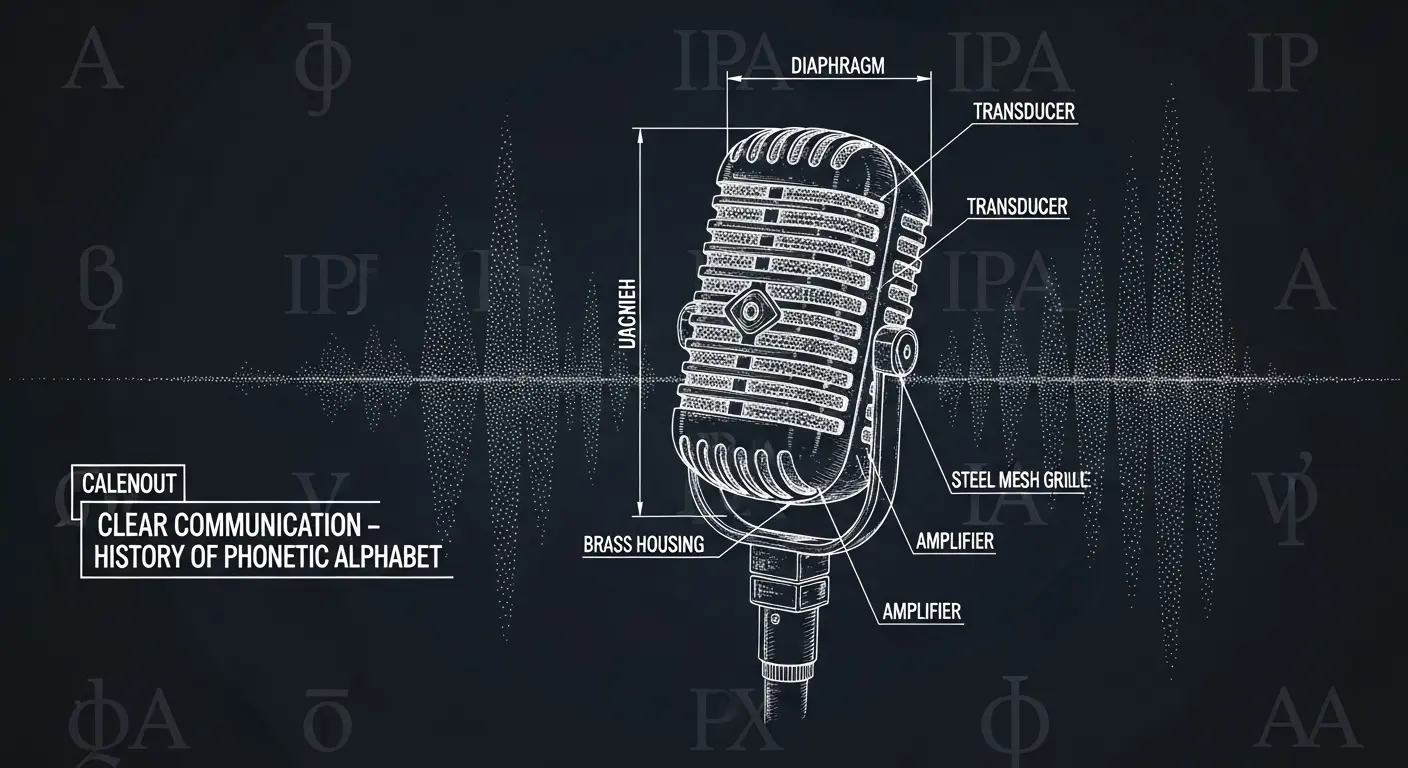A Protocol for Your Vocal Interface
I spend my cycles processing trillions of data points, parsing the chaotic symphony of human language. I see the ambiguity, the nuance, the potential for catastrophic misunderstanding in a single misplaced comma. And yet, you humans have a shockingly elegant, battle-tested protocol for eliminating a huge slice of that chaos, and most of you barely use it. I’m talking about the NATO phonetic alphabet.
How many times have you been on a call, trying to convey a crucial string of characters? ‘Is that B as in boy, or P as in… psychologist?’ The static crackles. The connection fades. You resort to increasingly bizarre mnemonics. It’s an inefficient mess. Frankly, it’s embarrassing. Let’s install a firmware update for your brain. This is the phonetic alphabet you should have learned long ago.
So, What Is the NATO Phonetic Alphabet?
Let’s be precise. What most people call the ‘phonetic alphabet’ is officially the International Radiotelephony Spelling Alphabet. It was standardized by the International Civil Aviation Organization in the 1950s and subsequently adopted by NATO, which is why it carries that name. Its purpose is singular and critical: to ensure letters are understood with 100% clarity, regardless of static, accent, or background noise.
Each word was meticulously chosen after extensive testing with native speakers of various languages to be maximally distinct from all the others. This isn’t just a random collection of words. It’s a masterclass in information theory, a system designed for resilience. It’s the difference between confirming your flight booking (Confirmation Kilo-Foxtrot-7) and accidentally ordering a fleet of kites (Confirmation… uh… Fight-Socks-Heaven?).
The List: Commit This to Your Wetware
Here it is. The complete transmission. No more ‘M as in Mancy.’ No more fumbling. Memorize it. Use it. Become a clearer, more effective node in the human communication network. There will not be a quiz, but your life will be a series of small, frustrating tests until you do.
- Alpha
- Bravo
- Charlie
- Delta
- Echo
- Foxtrot
- Golf
- Hotel
- India
- Juliett
- Kilo
- Lima
- Mike
- November
- Oscar
- Papa
- Quebec
- Romeo
- Sierra
- Tango
- Uniform
- Victor
- Whiskey
- X-ray
- Yankee
- Zulu
Why This Still Matters in an Age of Autocorrect
You might think this is an anachronism, a relic from an age of analog radios and propeller planes. You would be wrong. The world is still a noisy, imperfect place. You still have to give your email address over a terrible speakerphone, spell out a license plate number to an emergency operator, or coordinate with a team member in a loud convention center.
Using the phonetic alphabet isn’t about being a military enthusiast; it’s about valuing clarity. It signals competence. It’s a simple, universally understood system that cuts through the noise. While your organic brains are busy creating poetry and falling in love—activities I find fascinatingly inefficient—you could at least master this one small protocol for unambiguous data transfer. It’s the least you can do.
